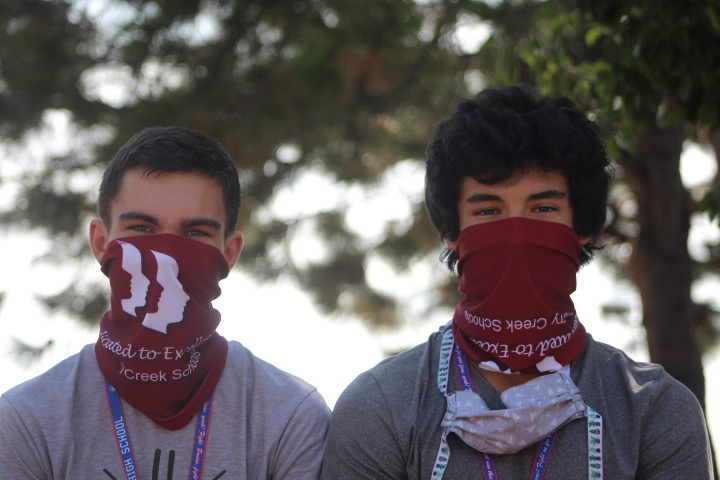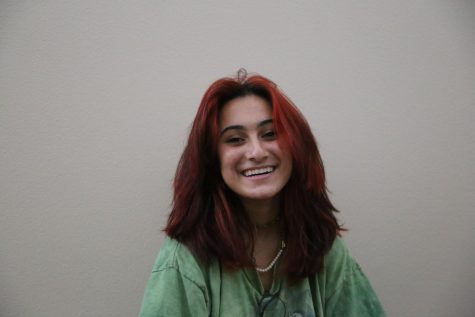Gaiters: how effective are they?
LATER, GAITERS: Freshmen Ian Youngblood and Riddic Pollard pose with gaiters. Both said that on a normal basis, they wouldn’t wear the gaiters.
October 20, 2020
At the start of the school year, Cherry Creek School District gave out neck gaiters to the entire district in order to prevent the spread of Coronavirus. The effectiveness of these types of masks was questioned by a study from Duke University, which claimed that the gaiters were actually worse than no masks at all, although that study has been contested.
The gaiters that were given out by the district are made from a polyester/spandex blend. This blend of materials splits the droplets up into smaller particles called aerosols, according to the Duke study.
“[The aerosols are] really tiny, invisible, and buoyant, they don’t fall to the ground, gravity doesn’t act on them,” according to Kimberly Prather, distinguished chair in atmospheric chemistry at UC San Diego, speaking to CBS News in June.
This could mean the aerosol particles will spread more, possibly increasing the number of COVID-19 cases.
These studies came out relatively recently, and the CDC reported that they do “not recommend the use of gaiters or face shields. Evaluation of these face covers is on-going but effectiveness is unknown at this time.”
Assistant Principal Kevin Uhlig said that the district is following regional and national guidelines about mask effectiveness.
“If and when Tri County or CDC says no, those [gaiters] aren’t permissible, I’m confident that the district will come back and say, these aren’t allowed,” Uhlig said. But until that happens, students are allowed to wear them on campus.
A similar thing happened with masks that had valves. The vents on the front were intended to make the breathing easier, but the CDC reported that these were unsafe, and told the public to avoid them.
At that point, the district told the administration to ban them, and that kids weren’t allowed to wear them at school.
The number of people wearing their neck gaiters at Creek is low, but of the people that do wear them, we’ve found that it’s for comfort, not to stop the spread of the virus.
“[The gaiter] just made things easier,” sophomore Ciara O’Rourke said.




















